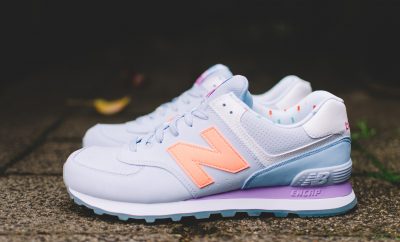 Image courtesy of [Aaron Goodman via Flickr
Image courtesy of [Aaron Goodman via Flickr
Business & Economics
A Crack in the Great Wall: Chinese Stock Market Takes a Tumble
Recent shifts in the Chinese stock market make America’s subprime mortgage fiasco look run-of-the-mill. From January 2014 to June of this year the market rose 150 percent, but since mid-June, the Shanghai Composite Index has lost more than 30 percent of its value. In fact, the recent slide was only slowed through direct intervention from the Chinese government. Following the Chinese market plunge, a number of opinions regarding what the crash means have been expressed. The debate ranges from fears of a full-scale, 1920s-era depression mixed with a housing bubble, to a simple market correction. Read on to learn about China’s market, what it actually means, as well as what impacts it has had on China and the world economy.
The Chinese Stock Market
History
The Chinese stock market, known as the Shanghai Stock Exchange (SSE), was founded in 1990. The market is overseen by the Chinese Securities Regulatory Commission, which is essentially a Chinese version of the U.S. Securities and Exchange Commission. After its start, the SSE has risen above competing exchanges to become the dominant market in China. Its purpose, so far, has been to raise capital for companies, particularly those in the infrastructure and tech fields. The SSE’s current goal is to transform Shanghai into a leading financial center on par with New York and London.
Volatility
While the SSE’s recent crash has garnered headlines, it followed a huge upswing, meaning that despite the recent plunge in stock prices, the market is actually up this year. To accurately discuss the volatility of the market it must be divided into two parts: a rise and fall.
First was the rise. Since the beginning of 2014 to June 2015 the market’s value rose by 150 percent. In the first five-and-a-half months of this year alone, the value rose by nearly 50 percent. The rise in China led to the increased importance of its financial industry, at the expense of traditional manufacturing powerhouses. This was all part of the government’s plan, which hoped to transition to a more financially driven economy, as growth rates slowed and eventually fell below the 10 percent glory days. However, China’s plan for its stock market has a taken a significant hit.
The rise, of course, is followed by a fall, and that fall has been dramatic. In a single two-week span, the value of the market fell by 25 percent. To put it another way, in just two days the market lost 11 percent of its value, which in the United States would translate to a 2,000 point drop in the DOW. These recent losses can be attributed to investors who were in highly leveraged positions, meaning they accumulated much more debt than the equity that they held, leading them to sell when margin calls began. A margin call happens when a broker demands that an investor, who used margin to pay for his investment, put up more money or collateral to cover a potential loss. In other words, people were buying shares on the SSE in an effort to get rich quick. However, when the market began collapsing, many were forced to sell in order to cover margin calls, which led to plummeting stock prices and marketwide panic. The following video explains the fall:
A Deeper Meaning?
Government Response
So what does the recent crash mean for China? The Chinese government did not wait to find out. Following the collapse, the government reduced regulations on margin buying, halted new IPOs, and encouraged several other efforts aimed at increasing stock sales. Additionally, it stopped trading on most stocks and put a moratorium on selling in place for six months for all large investors. Finally, it threatened individuals and groups known as short sellers–parties that make money when a stock price declines.
The results of all these efforts have been less than encouraging. Following the temporary ban on selling, the market began falling even further. This is a result of the market being reopened to a natural state where investors can sell when an investment looks bad, as much of the Shanghai market looks right now.
Should we be worried about the collapse?
In the best case scenario, the collapse was all just the result of panicked investors with little experience; they saw the value of their investments grow rapidly and were anxious to cash out before anything bad happened. On the other hand, it is possible that the market was experiencing a bubble. A bubble occurs when something is overvalued because of continuous investing and not actual results, or because of the influx of a new product that projects future growth–think housing or tech in the United States.
Unfortunately, if the latter is true things could get worse before they get better. Because the Chinese government prevented the bubble from completely bursting, it could essentially be lingering there, waiting to burst when the regulations ease up. Even if this is not the case, the perception of a bubble could lower stock prices and companies’ desire to invest. Corporations who invested, including foreign ones, are also barred from selling right now and this episode may make them less likely to invest in China going forward.
Currently, the final outcome is still unclear and opinions remain divided. Some companies, such as Bank of America, Merrill Lynch, and Credit Suisse, see China as a systemic bubble that can or will burst when the government removes its support. On the other hand, Goldman Sachs sees the recent plunge as a market correction, needed to reduce over-valued stock prices and push out the wrong type of investors. The video below details the crash and the government’s reaction:
The Impact
Because China has the number two economy in the world, a stock market crash is likely to have an effect that will reverberate around the world. So, what exactly does the stock market crash mean?
China
It may be too soon to understand how the recent plunge will affect China’s economy in the long run. While the market lost nearly $3.5 trillion since mid-June, its value remains positive this year due to a massive upswing early on. It is also difficult to tell whether the recent volatility will continue or if the market will start to settle down.
What the crash shows most clearly, though, is the oversized role of the government in economics and the unclear nature of its actions. The government’s response, which involved a significant amount of intervention from regulators, may discourage future investment. That response and the apparent lack of regulatory coordination indicate that the Chinese government have many worrying that it will run into further challenges as it attempts to balance stability with a more market-driven system.
Worldwide
The international impact of the Chinese market collapse has been less noticeable than the effect on China itself. Since China remains relatively isolated from the global financial system, the effect of the losses has had little impact on other markets. In fact, the stock market crash in China had considerably less influence on the world economy than tiny Greece–simply because Greece was more plugged in.
The real significance, if anything, will come in the future. If China’s economy takes a nose dive it could mean less investment coming from the country as well as fewer opportunities to invest in its markets. Additionally, efforts to further incorporate China into the world system may be scuttled. The video below discusses the ramifications of the Chinese stock market crash:
Conclusion
Seeing the Chinese stock market lose 25 to 30 percent of its value in about a month is very unsettling, especially with the recent Greek crisis and the lingering memory of the United States’ 2008 meltdown. But it is important to note that despite all the panic, the Shanghai index remains positive this year.
The real impact of the crash focuses primarily on China itself. For the average investor, the collapse could have wiped out a lifetime worth of income, and may be the first sign of a lingering bubble in the market. For China’s general population, the crash revealed, much like in developed nations, the growing gap between haves and have-nots. For the have-nots, the fiasco may also slow promised social reforms, which could further exacerbate the wealth gap.
Ultimately for China, the crash presents yet another crossroad. The stock market was supposed to be the avenue for future growth when the country’s manufacturing sector fizzles, as it did in the earlier Western model. But the crash raises doubt. If China ever truly wants to be a global economic actor or at least a regional one, it will have to learn to manage volatility without excessive intervention and control from the government.
Resources
Primary
Shanghai Stock Exchange: Brief Introduction
Additional
Business Insider: Goldman Sach’s on China’s Stock Market collapse
Fortune: China’s Wild Stock Market Ride in One Chart
Bloomberg View: China’s Tamed Stock Market Might Bite its Economy
The New York Times: Cooling of China’s Stock Market Dents Major Driver of Economic Growth
Slate: China’s Stock Market is Falling Again
Business Insider: China Pays a Price to Avert Stock Market Crash
The Washington Times: No Worries about Impact of China Stock Market Crash on U.S. Economy Yet








Comments